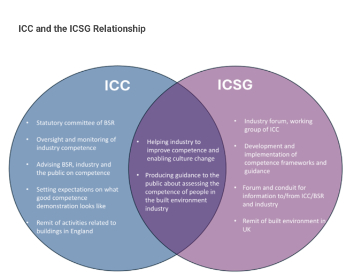Intelligent Building Automation Technologies Market 2020 Research Report
The intelligent building automation technologies (IBAT) market is anticipated to reach over USD 118.7 billion by 2026 according to new research published by Polaris Market Research.
The major driving factor for the intelligent building automation technologies market is the increasing need for infrastructure with reduced CO2 emissions, which further triggers governments to provide more incentives as the trend for smart cities is on a rise. IBAT also has become a differentiator in the real estate business as it conforms to improved safety and security systems.IBAT aims to reduce operational costs through the integration of IoT (Internet of Things) platforms.
Stringent energy consumption regulations passed by governments worldwide have boosted the adoption of Intelligent Building Automation Technologies. Growing concerns regarding the environment, depleting fuel resources, and the increasing need to reduce energy consumption further support the growth of the intelligent building automation technologies market. Other factors supporting market growth include increasing awareness, and technological advancements, increasing investments by vendors in technological advancements coupled with research and development.
North America generated the highest revenue in the market in 2017 and is expected to lead the global market throughout the forecast period. This is driven by rising concerns among consumers regarding the environment, coupled with increasing awareness regarding intelligent building automation technologies. The governments in the region are collaborating with engineers and architects to promote the adoption of Intelligent Building Automation Technologies. Commercial buildings are adopting Intelligent Building Automation Technologies owing to stringent government regulations, and the need to reduce operating costs.
The major players operating in the intelligent building automation technologies market include Siemens Building Technologies Inc., General Electric, Johnson Controls Inc, ABB Ltd., Eaton Corporation, Rockwell Automation, Ingersoll Rand Inc., Schneider Electric, Honeywell International, and Delta Controls. These companies launch new products and collaborate with other market leaders to innovate and launch new products to meet the increasing needs and requirements of consumers.
[edit] Related articles on Designing Buildings
Featured articles and news
Twas the site before Christmas...
A rhyme for the industry and a thankyou to our supporters.
Plumbing and heating systems in schools
New apprentice pay rates coming into effect in the new year
Addressing the impact of recent national minimum wage changes.
EBSSA support for the new industry competence structure
The Engineering and Building Services Skills Authority, in working group 2.
Notes from BSRIA Sustainable Futures briefing
From carbon down to the all important customer: Redefining Retrofit for Net Zero Living.
Principal Designer: A New Opportunity for Architects
ACA launches a Principal Designer Register for architects.
A new government plan for housing and nature recovery
Exploring a new housing and infrastructure nature recovery framework.
Leveraging technology to enhance prospects for students
A case study on the significance of the Autodesk Revit certification.
Fundamental Review of Building Regulations Guidance
Announced during commons debate on the Grenfell Inquiry Phase 2 report.
CIAT responds to the updated National Planning Policy Framework
With key changes in the revised NPPF outlined.
Councils and communities highlighted for delivery of common-sense housing in planning overhaul
As government follows up with mandatory housing targets.
CIOB photographic competition final images revealed
Art of Building produces stunning images for another year.
HSE prosecutes company for putting workers at risk
Roofing company fined and its director sentenced.
Strategic restructure to transform industry competence
EBSSA becomes part of a new industry competence structure.
Major overhaul of planning committees proposed by government
Planning decisions set to be fast-tracked to tackle the housing crisis.
Industry Competence Steering Group restructure
ICSG transitions to the Industry Competence Committee (ICC) under the Building Safety Regulator (BSR).
Principal Contractor Competency Certification Scheme
CIOB PCCCS competence framework for Principal Contractors.
The CIAT Principal Designer register
Issues explained via a series of FAQs.
























